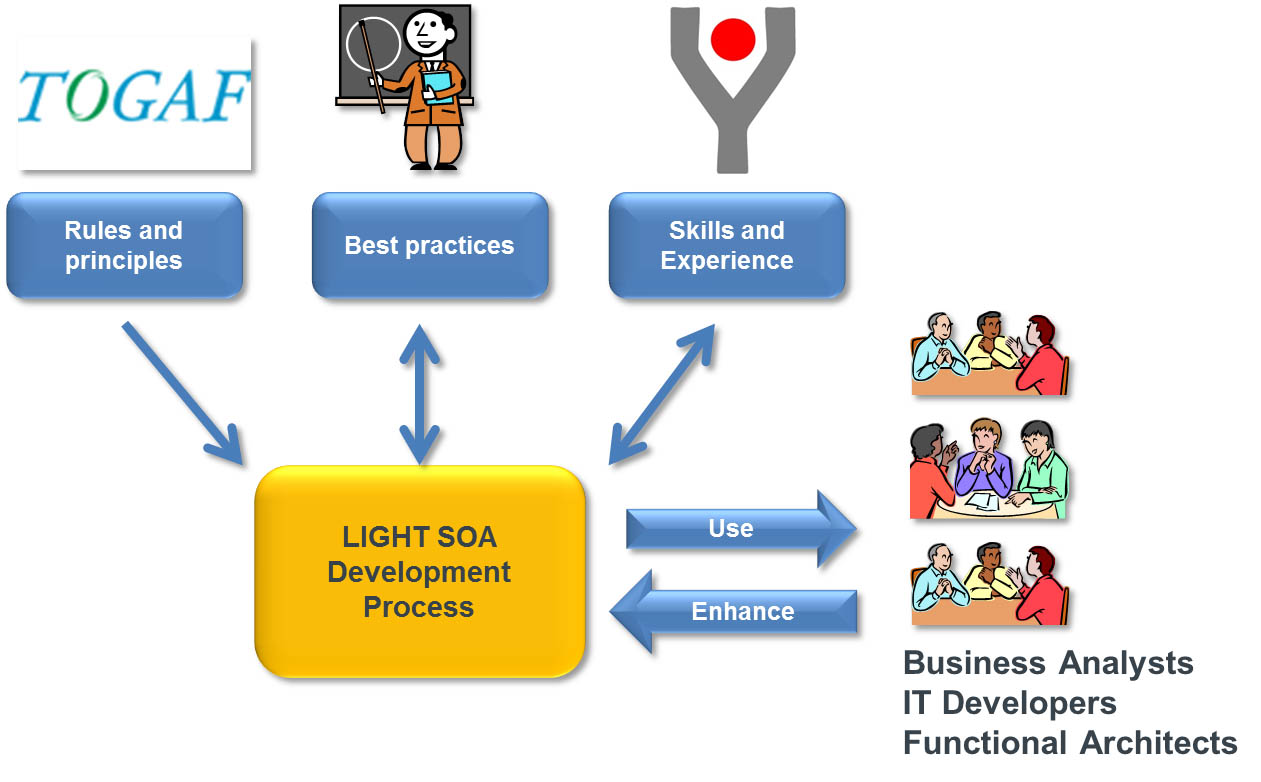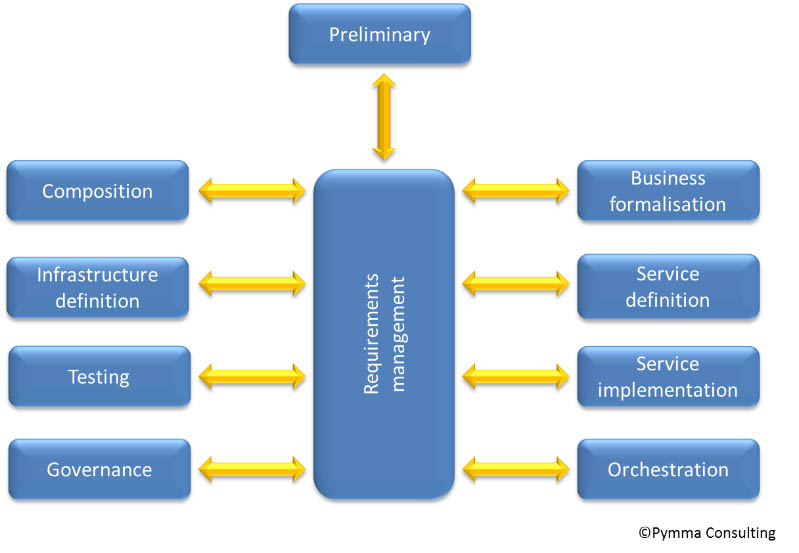![]()
Rebecca development process introduction

Rebecca development process is a simple and easy framework defined by Pymma’s architects to design and develop application and architecture with a services orientation. The main principle of Rebecca is to be a simple and structured approach understandable by teams and people working in IT. We designed Rebecca neither for reorganizing companies’ IT infrastructure nor to structure global enterprise architectures. Rebecca goal aims to help teams involved in a service oriented projects, make easier communication between stakeholder, business, development and support. Rebecca does not attempt to replace PM method (agile or not) but its purpose is to structure and organize service oriented projects and avoid the main pitfalls found in this kind of project. Rebecca is easy to understand and does not require a strong methodology background. We tried to ward off the complexity found in many development processes. To keep Rebecca simple, short and useful for each one, the user can easily inject in the process backgrounds and feedbacks from external sources and a large latitude is let to personal initiative define steps and to-dos. Rebecca users could start with a predefine template and refine it when their background increases. They can take advantage of external consultant’s skill to refine steps and to-dos.

